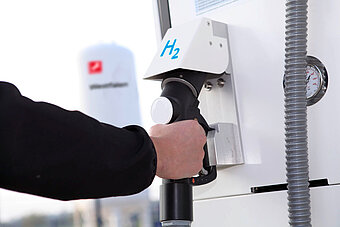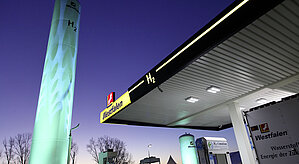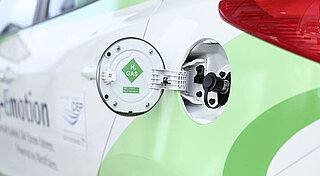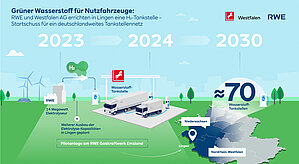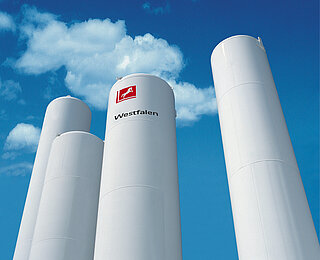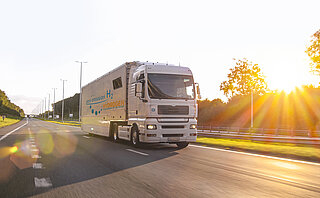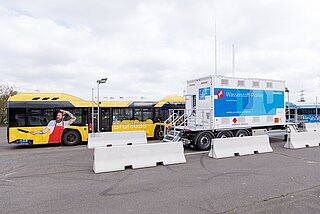Hydrogen mobility is picking up speed: While the number of registered passenger cars and buses has already risen steadily in recent years, the first fuel cell trucks have also been on German roads since the end of 2022. Hydrogen as a fuel offers convincing advantages, especially for commercial vehicles and heavy-duty transport: long ranges, short refuelling times, no restrictions on payload or driving in environmental zones. And of course the quiet and clean drive meets the increasing demands of many clients for sustainability and climate protection. In future, climate-friendly green hydrogen will be used for vehicle refuelling. This will be produced by electrolysis, using renewable energies.
Are you also considering the procurement of fuel cell vehicles for regional or long-distance transport?
You are not sure whether the refuelling possibilities are sufficient?
Then Westfalen is the right partner for you - contact us!
As an expert in sustainable mobility, we have been operating a hydrogen filling station in Amelsbüren since 2016. In addition, we are planning together with our partner RWE the construction of up to 70 more H2 stations, starting in NRW and Lower Saxony.

